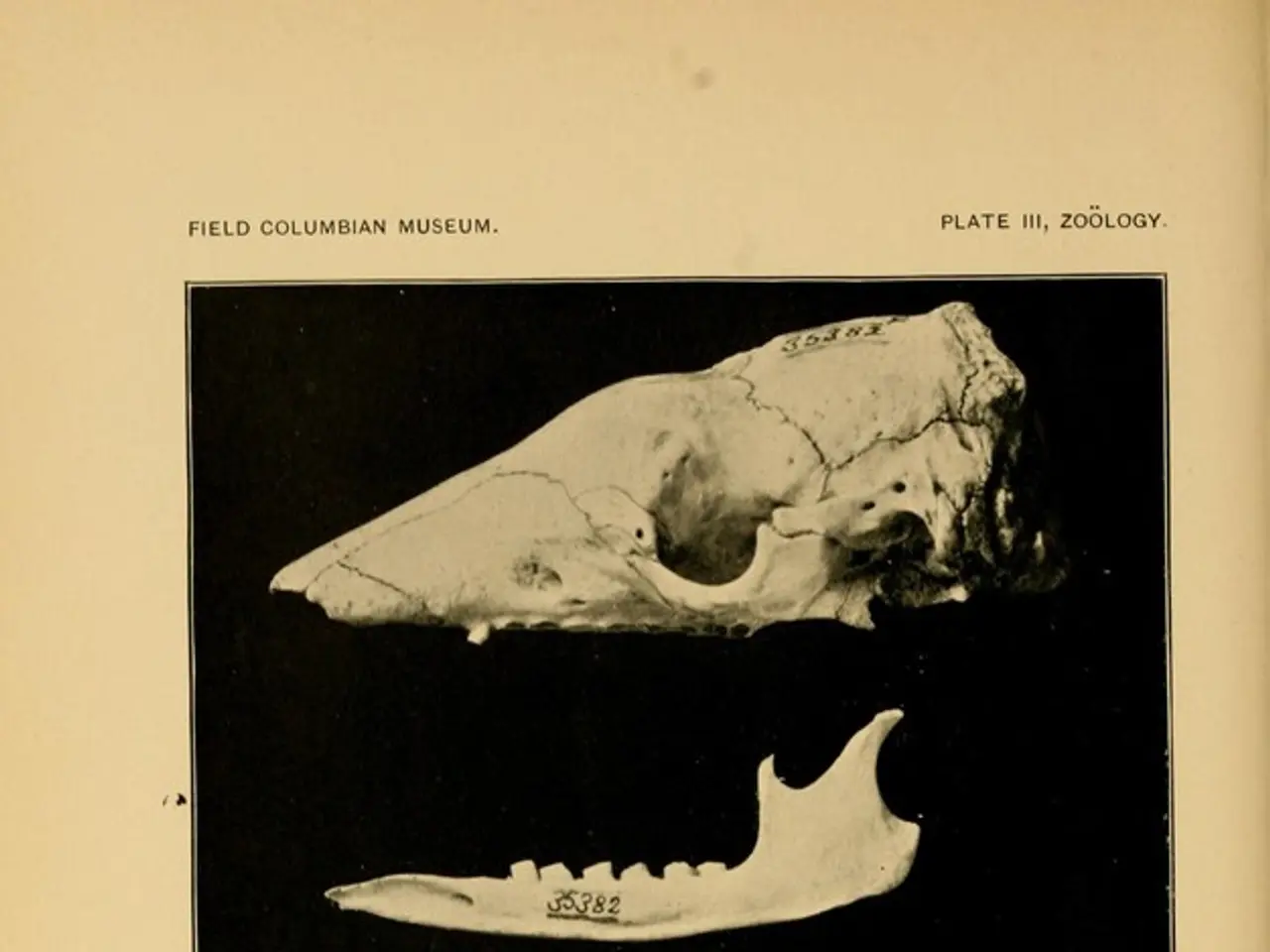Improved Bone Health through Prunes: Insights on their Advantages and Impact
Prunes, a popular dried fruit, have been found to offer potential benefits for bone health, particularly in the prevention and reversal of osteoporosis. This condition, which results in weak and fragile bones, increases a person's risk of breaking a bone even after minor falls and bumps.
Multiple clinical and mechanistic studies suggest that regular prune consumption can slow bone loss, maintain bone density, and improve bone strength, especially in postmenopausal women.
One study tracking 235 postmenopausal women found that those eating prunes maintained their bone density and strength, including cortical (hard outer layer) bone and hip bone mineral density, compared to a control group that lost over 1% bone density in the same period. This benefit was observed with the daily consumption of about 50 grams of prunes, equivalent to 4-6 prunes.
The bone-protective effects are attributed to prunes’ rich content of nutrients like vitamin K, boron, potassium, and especially polyphenols, which have powerful anti-inflammatory properties. Chronic inflammation contributes to postmenopausal bone loss, and the phenolic compounds in prunes reduce inflammatory markers that promote bone breakdown.
At the cellular level, prune polyphenols enhance osteoblast function (bone-forming cells) and suppress osteoclast activity (bone-resorbing cells), promoting a bone environment favoring formation over loss. This dynamic helps to prevent and potentially reverse osteoporosis-related bone degradation.
New research highlights the gut-bone axis as part of the mechanism: fiber in prunes supports beneficial gut bacteria that produce short-chain fatty acids with systemic anti-inflammatory effects, possibly influencing bone gene expression and further supporting bone health.
While some studies were funded by the California Prune Board, researchers have clarified that funders did not influence study design or interpretation, lending credibility to the findings.
In addition to their bone health benefits, prunes are also known for their ability to increase the frequency of bowel movements and improve stool weight in those who do not eat much fiber. They are a good source of vitamin K, which plays an important role in bone health, and high levels of potassium, which is associated with improved bone health.
Prunes can be consumed in various ways, including eating them alone, adding them to oatmeal, mixing them with nuts and dried fruits, using them in baked goods, adding them to savory stews, drinking prune juice, or adding them to smoothies. Daily consumption of 5-6 prunes is enough to benefit bone health.
In summary, prunes appear to offer a natural, nutritional approach to help prevent and partially reverse bone loss in osteoporosis through multiple mechanisms: reducing inflammation, supporting bone-building cells, and maintaining bone mineral density and strength, particularly in postmenopausal women at high risk of osteoporosis.
- Depression and bipolar disorders are chronic mental health conditions that can sometimes co-occur with osteoporosis, a condition characterized by weak and fragile bones.
- Workplace-wellness programs often focus on providing resources for managing chronic diseases such as obesity, depression, and bipolar, but they may also overlook the importance of health and wellness interventions such as fitness and exercise, nutrition, and skin care for maintaining bone health.
- Osteoporosis is not just a concern for women, men also experience a higher risk of developing this condition as they age, making men's health an important factor in overall bone health.
- AQ research found a significant association between high levels of vitamin K and increased bone density in both men and women, making prunes, a rich source of vitamin K, a valuable food for maintaining bone health.
- In addition to their bone health benefits, prunes have also been found to improve digestive health, helping to increase the frequency of bowel movements and improve stool weight in those who do not eat much fiber.
- Therapies and treatments for mental health conditions such as depression and bipolar often focus on medications and talk therapy, but lifestyle factors such as nutrition and exercise can also play a crucial role in managing these conditions and supporting overall health.
- Women's health is often associated with reproductive health issues such as menstrual cycles, pregnancy, and menopause, but it also includes other aspects such as bone health, mental health, and nutrition.
- New research in the field of science is shedding light on the potential predictive role of gut health in bone health, with fiber in prunes supporting beneficial gut bacteria that may further support bone health through systemic anti-inflammatory effects.
- Chronic diseases such as obesity and osteoporosis can have far-reaching consequences on a person's overall health and well-being, making it crucial to prioritize health and wellness practices such as nutrition, fitness and exercise, and skin care for maintaining overall health and preventing the onset of these conditions.




